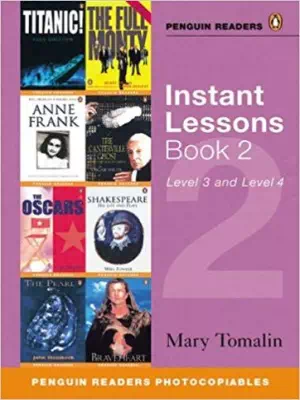Instant Lessons Book 2 Level 3 and Level 4
Instant Lessons Book 2 Level 3 and Level 4 PDF All classes and Instructor’s Notes are photocopiable. The guide goals to supply stimulating, pleasant classes with particular language goals. No different materials is required and preparation is minimal. Level 3: Humour. Telling a narrative; Previous steady. Verb + infinitive; intention and obligation. The…
